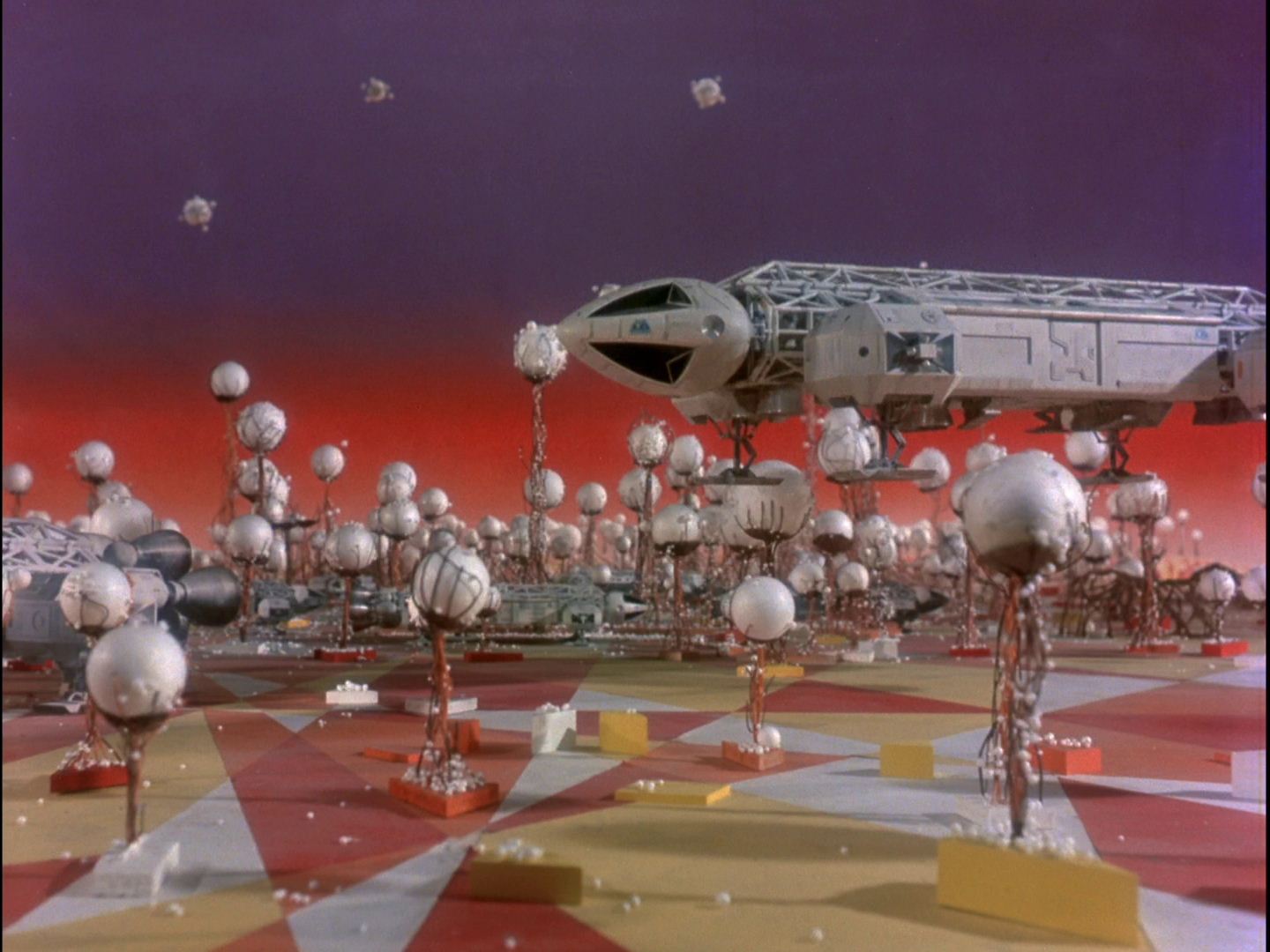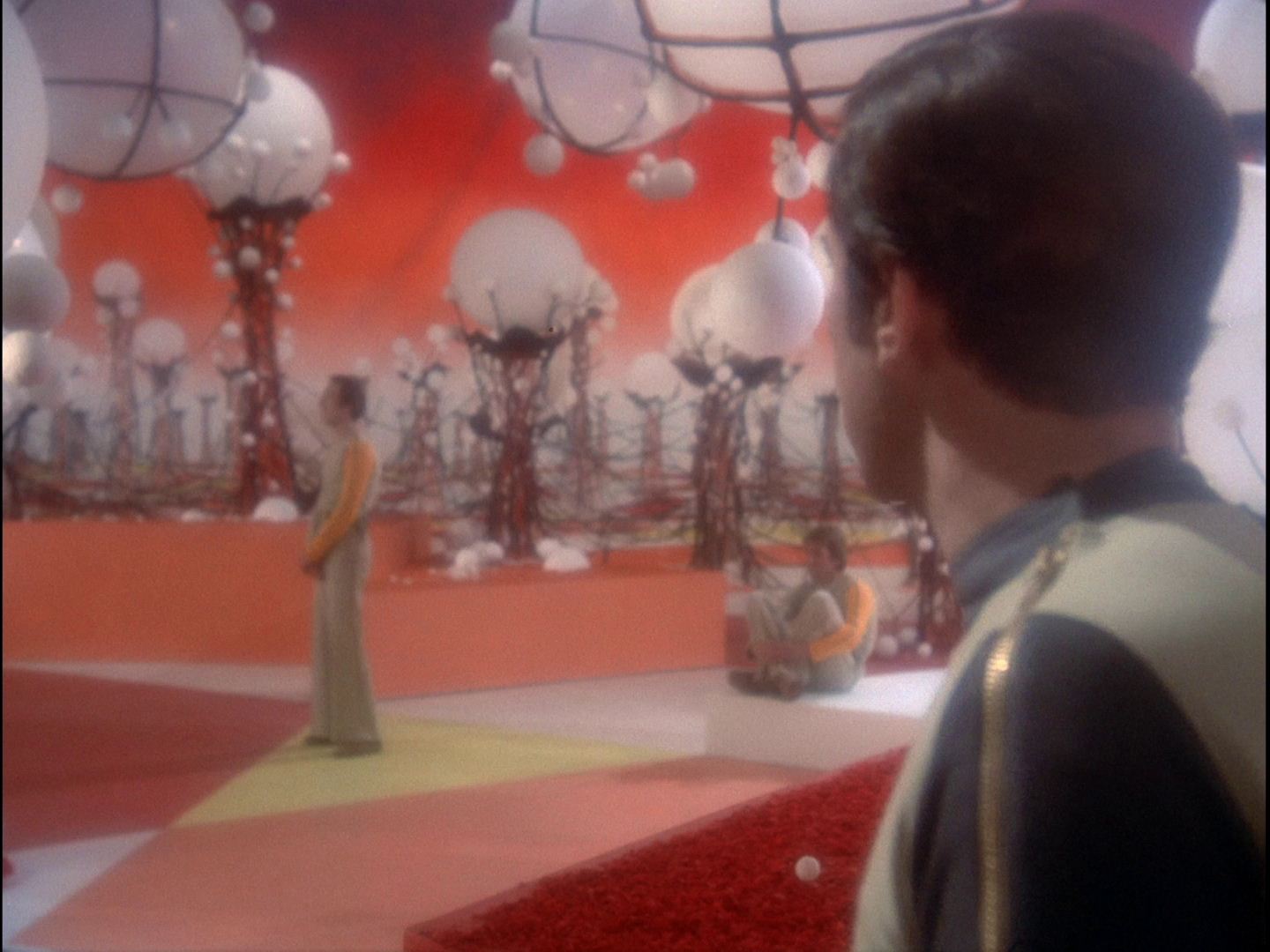Yep. This seems to be a peculiarity of the Sci-fi British TV series. I don't remember similar heated debates about the correct viewing order of Star Trek TOS (because everybody know that the correct order is the alphabetical oneIndeed... There doesn't seem to be any consensus about the "correct" viewing order for Space: 1999, or for the previous Gerry Anderson series UFO. A lot of episodic British shows seemed to be shown in various different orders in different markets. There are something like six or eight different "preferred" viewing orders for The Prisoner, and they only agree on the first episode and the last two.
 )
)Of course, it's because of that flexibility of viewing order that my local station back in the '70s was once able to schedule Star Trek: "The Immunity Syndrome" and Space: 1999: "The Immunity Syndrome" back-to-back on the same night. Some programmer on Channel 19 had a sense of humor...

I remember when I saw Space: 1999 on the Italian television. The first season was a co-production ITC/RAI (RAI is the Italy's national public broadcasting company). And the story of how the executives of the latter were persuaded to co-finance the series is quite funny...
From http://marco.space1999.net/faq_main.htm (sorry, Google translation
 )
)How it was that RAI was involved in the 1999 Space co-production?
In 1974 it broke out the one that will go down in history as the "oil crisis": in practice, the Arab countries incresed tenfold the price of oil, thus putting the Western economies on their knees until the early 80s. Among the first consequences, there was rationing of gasoline and electricity to minimize the costs and not blow up inflation.
Clearly the production of Space 1999 found himself struck broadside by these measures: Pinewood was rationed electricity, therefore, to continue filming, we had to move forward with electricity self-generators: translated in a nutshell, this meant an increase in unaffordable expenses.
In the spring of 1974 the head of the ITC, Sir Lewis Grade, realized that you could not go on too long doing the math, the shooting had just started, production was already burdened with organizational problems, and therefore the electric rationing he was likely to be the final blow if there was not an extra fresh money injection.
But where to find it? In the environment it was well known that there were potential donors concerned at what appears to be "a science fiction show most extraordinary we've ever seen." Among them, it seems particularly interested the Italian state television RAI.
The RAI, in the early 70s, was very interested in alliances with foreign producers, in order to offer its viewers broad productions, as well as to take off the label of "provincialism" that often afflicted.
Clearly Lewis Grade was with the problem of being able to be convincing: since served many, but just as much money to avoid bankruptcy, you had to be able to offer Italians something really superb. What better opportunity than to invite RAI delegates directly on the set?
The Grade clever man, even knowing than they were "provincial" Italians, and conscious at the same time that Space 1999 was something never seen before, called in May 1974 for dignitaries RAI asking to come for a visit on the set "... without compliments, really it is not the case, take a trip to see what we're working on, so you can get an idea about the quality of our work and decide if you want to participate in the production."
In May 1974, he was filming "Guardian of Piri" ... what a combination, one of the most spectacular episodes of the entire series! And so, the RAI executives arrive at Pinewood "... just to take a look ..." and find themselves catapulted to the set. And what do they see? The Main Mission! The Eagles! The rooms and corridors! The uniforms of Space: 1999! The planet Piri, with styrofoam globes everywhere! They were literally speechless. Who had ever seen anything like that, at the time ????????
Legend has it, and it seems that it has been confirmed by the same Grade, that RAI executives were so shocked by what they saw that night the contract was signed virtually! RAI pledged to become a co-producer of Space: 1999 in exchange for a robust funding (about one-third of the budget) that would allow production to reach the end without too many worries of mind.
As a direct result of the involvement of RAI, "Space 1999" would have to have two Italian regulars: The operator of the control room Sandra Sabatini and especially the pilot Alfonso Catani. Sylvia Anderson, accompanied by the casting director Michael Barnes, went to Italy to meet with actors for the part of the Catani. After several fruitless days, just as she was to return to London, Anderson came across in the hotel lobby in a very attractive young that seemed perfect for the part. It was Giancarlo Prete, the last actor summoned. Priest offered to accompany them personally at the airport when they were first passed in the Roman theater where he worked to see him play.
Back in England, the Anderson called the actor, along with other Italian colleagues, to do rehearsals with Martin Landau. Landau had not been informed of the intention of the producers to introduce a younger and energetic character to combine with Koenig and reacted furiously. The American actor was concerned that Catani could somehow obscure the character of Koenig. Some of the squad players felt intimidated by Landau during the auditions. Sylvia Anderson finally managed to convince Landau of the need to introduce a secondary character like Catani. Priest won the role, but he could not withdraw from a previously signed contract in Italy for his role as Tommy in the classic of the genre 'thriller' 'The citizen rebels "(1974) by Enzo G. Castellari and had to give up the part. The desperate last-minute attempts to find an English actor who could pass for Italian failed miserably. Eventually the roles of Catani and Sabatini were modified and became Australia's Alan Carter and Sandra Benes.
Negotiations with RAI lasted up to six months after the start of filming. Eventually the Italian money arrived, and with them four Italian actors chosen as a guest star. Giancarlo Prete was the first (Dan Mateo in "The Troubled Spirit "). They followed Carla Romanelli (Melita in "Space Brain"), Gianni Garko (Tony Cellini in "Dragon's Domain") and finally Orso Maria Guerrini (Luke Iron in "The Testament of Arkadia" ).



 What am I missing?
What am I missing?


